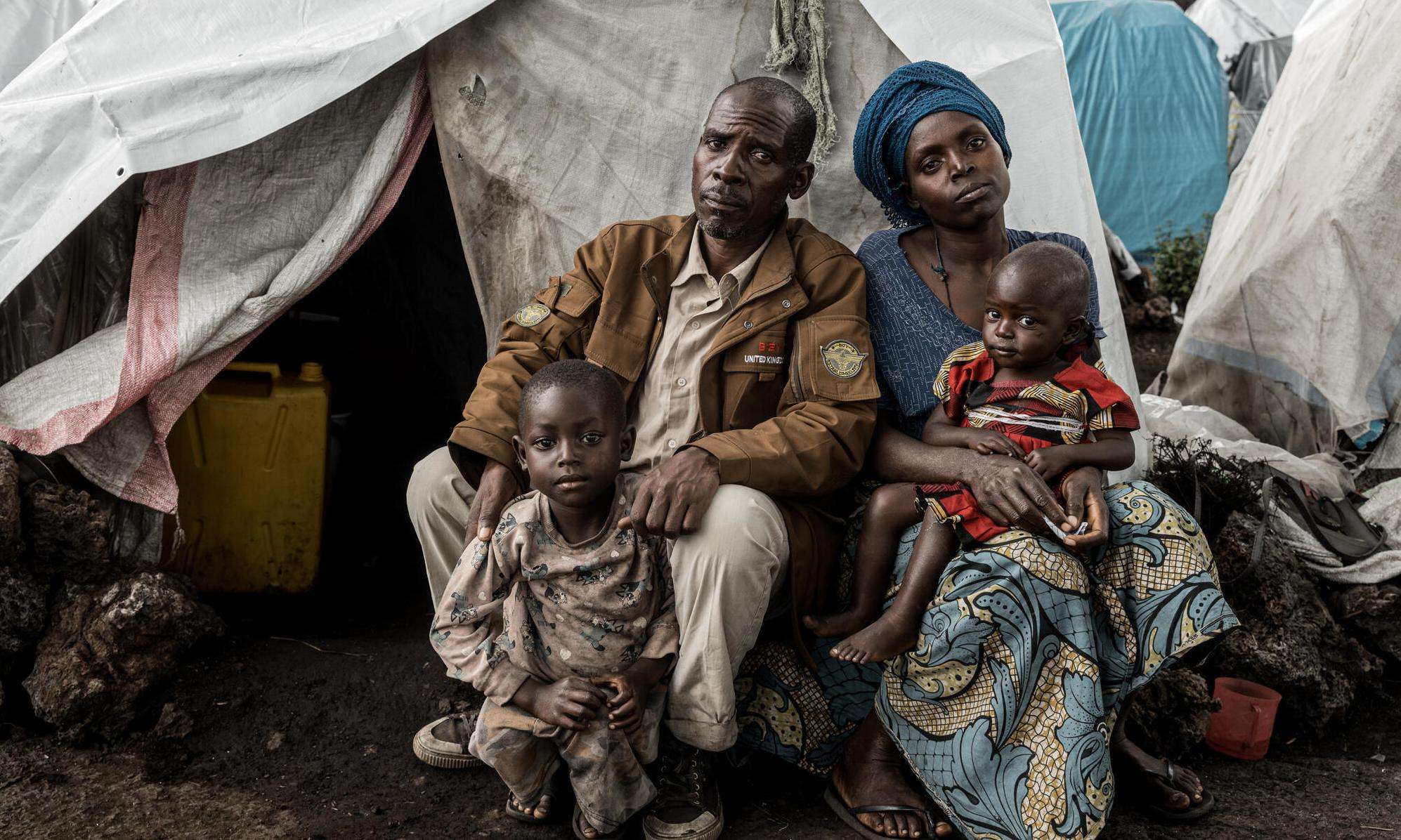The resurgence of violence this year in Democratic Republic of Congo (DRC) has exacerbated the humanitarian crisis in displacement camps, where people are living in dire conditions without access to even the most basic needs.
The humanitarian crisis in the east of the country reached dramatic proportions in 2023, with massive levels of violence and displacement. In North Kivu, clashes linked to the resurgence of the M23 armed group have forced about 1 million people to flee their homes. The often-overshadowed provinces of Ituri and South Kivu are similarly wracked with relentless violence, causing grave repercussions for the people living there. Despite the catastrophic humanitarian situation, aid remains desperately limited, and people’s needs continue to be overwhelmingly unmet.
In North Kivu, violence between armed groups including the prominent M23—has triggered constant and massive population movements across Rutshuru, Nyiragongo, and Masisi territories. The conflict has escalated since October this year, which has only exacerbated the humanitarian disaster.
"The current situation is just catastrophic," said Germain Lubango Kabemba, an MSF representative in Goma. "Wherever you look, [there is] urgency to act.”
At a glance: DR Congo
- 6.9 million internally displaced people—one of the highest numbers on the African continent.
- Many are cut off from even the most basic necessities, such as food, safe drinking water, and health care.
- Cholera cases nearly tripled, sexual violence cases almost doubled, and measles cases increased by more than 10,000 between January and October 2023.
In a grim milestone, the UN announced in late October that there are now a record-breaking 7 million internally displaced people in DRC, with around 5 million concentrated in the eastern part of the country.
The violence in North Kivu has triggered several waves of displacement of people into South Kivu, notably around Minova and surrounding villages, where the already-poor hygiene conditions have led to an increase in cases of cholera. At the same time, the closure of health facilities in North Kivu due to the insecurity has forced people who need ongoing health care to move south.
In Ituri, one-third of the population is now displaced as a result of years of conflict. People living in such prolonged displacement have been hit hard, both mentally and physically.
“Ituri is a region where over the past 30 years, we have seen a major disinvestment in even the most basic medical services and infrastructure, which makes access to any medical services already very problematic without conflict on top [of that]," said Alira Halidou, MSF head of mission in Ituri.
A wake-up call for the world
Every day, MSF teams witness the impact of the dire living conditions displaced people are living in—makeshift shelters without essentials like adequate food, safe drinking water, or basic sanitation. They have become extremely vulnerable to illness and infectious diseases such as cholera and measles. Women face the threat of sexual violence, which we have seen in extremely high numbers in the displacement camps near Goma.
“The humanitarian needs are everywhere and are massive, but as a medical organization we can only respond to the most pressing and urgent ones,” said Halidou. “Today, more than ever before, displaced communities are in dire need of concrete and clear action from international humanitarian organizations in the face of this growing emergency. We hear—and are confronted with—communities’ growing pleas for more aid to meet their most basic needs. While the lack of humanitarian presence in many areas of eastern DRC is unfortunately nothing new, the soaring level of needs we see now should act as a wake-up call.”
Despite MSF’s repeated calls for a mobilization of aid, progress remains insufficient. The crisis gripping DRC demands an urgent and united international response. It's time to answer the calls of the people and communities who need support most, including our patients. We must ensure their voices, their stories—their inhumane realities—are heard and answered.
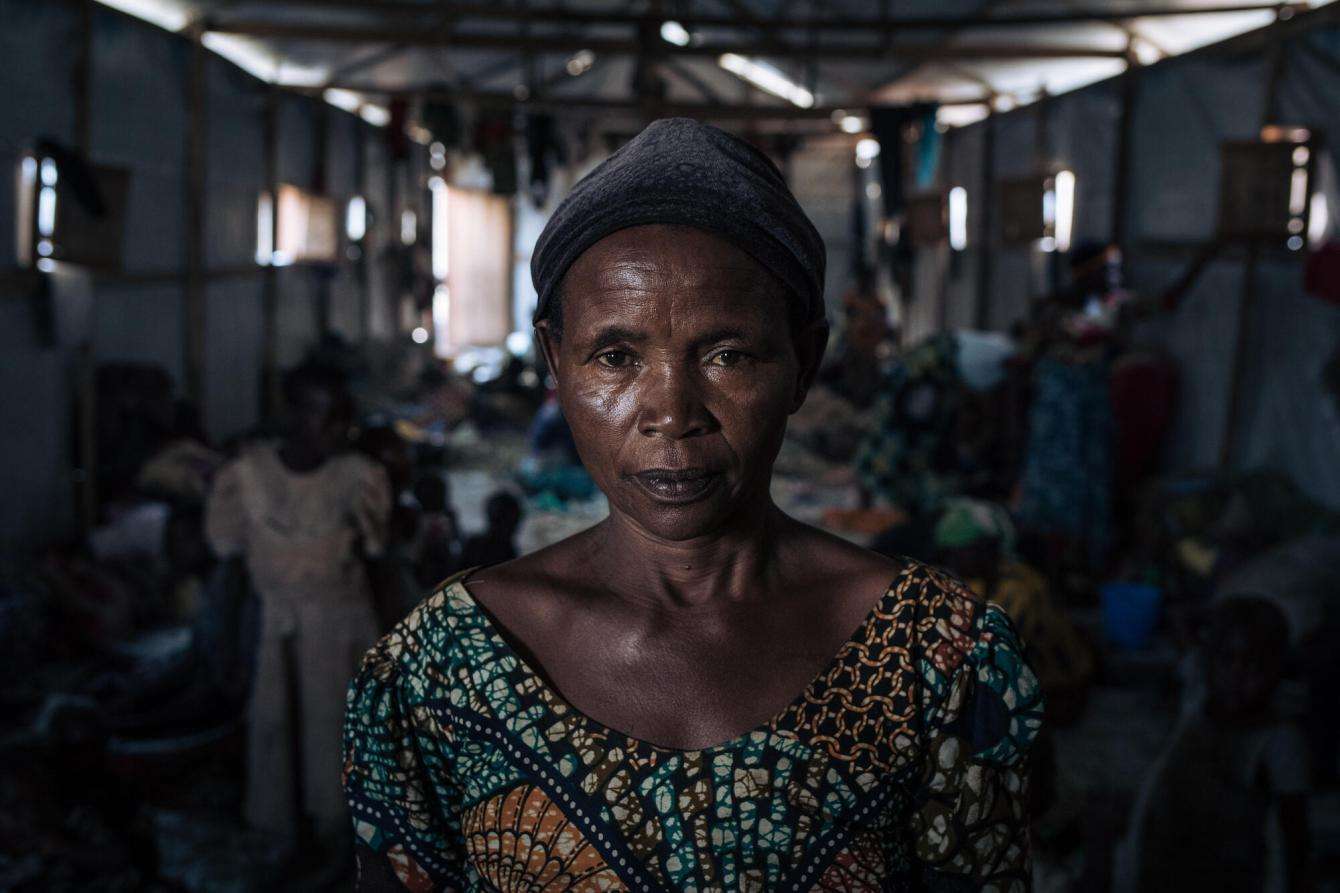
Agrippine
Agrippine, a 53-year-old displaced widow, lives in a community shelter at the informal displacement camp in Rugabo Stadium in Rutshuru Center. She fled her village with six of her children because of clashes between the Congolese army and M23 in early 2023. She has no news of her other four children.
“I came on foot to Rutshuru with one of my children, and five others joined us afterwards. The others must be in Uganda today. I have no news since we fled […] I have no family here in Rutshuru. I ask in the neighborhoods for food for my children. I have never received any food distribution, neither the basins nor the pots, nothing. When it rains, the water floods the ground in the shelters and we spend the night in the water.”
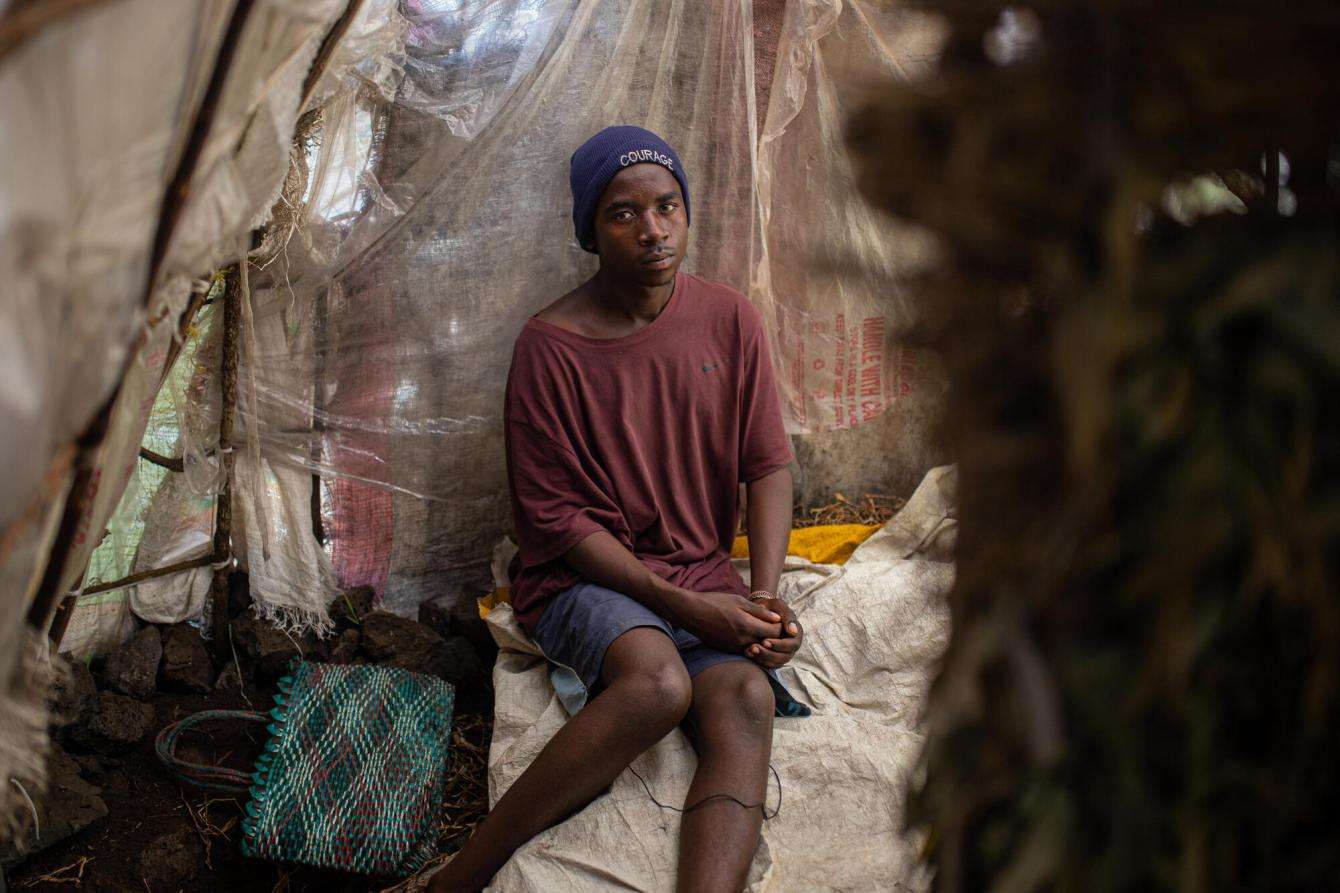
Espoir
Espoir, 28, fled the conflict in Masisi territory and settled with his family in the displacement camp of Lushagala, west of Goma, in May. He wants to build a new life in Goma and become a rap singer.
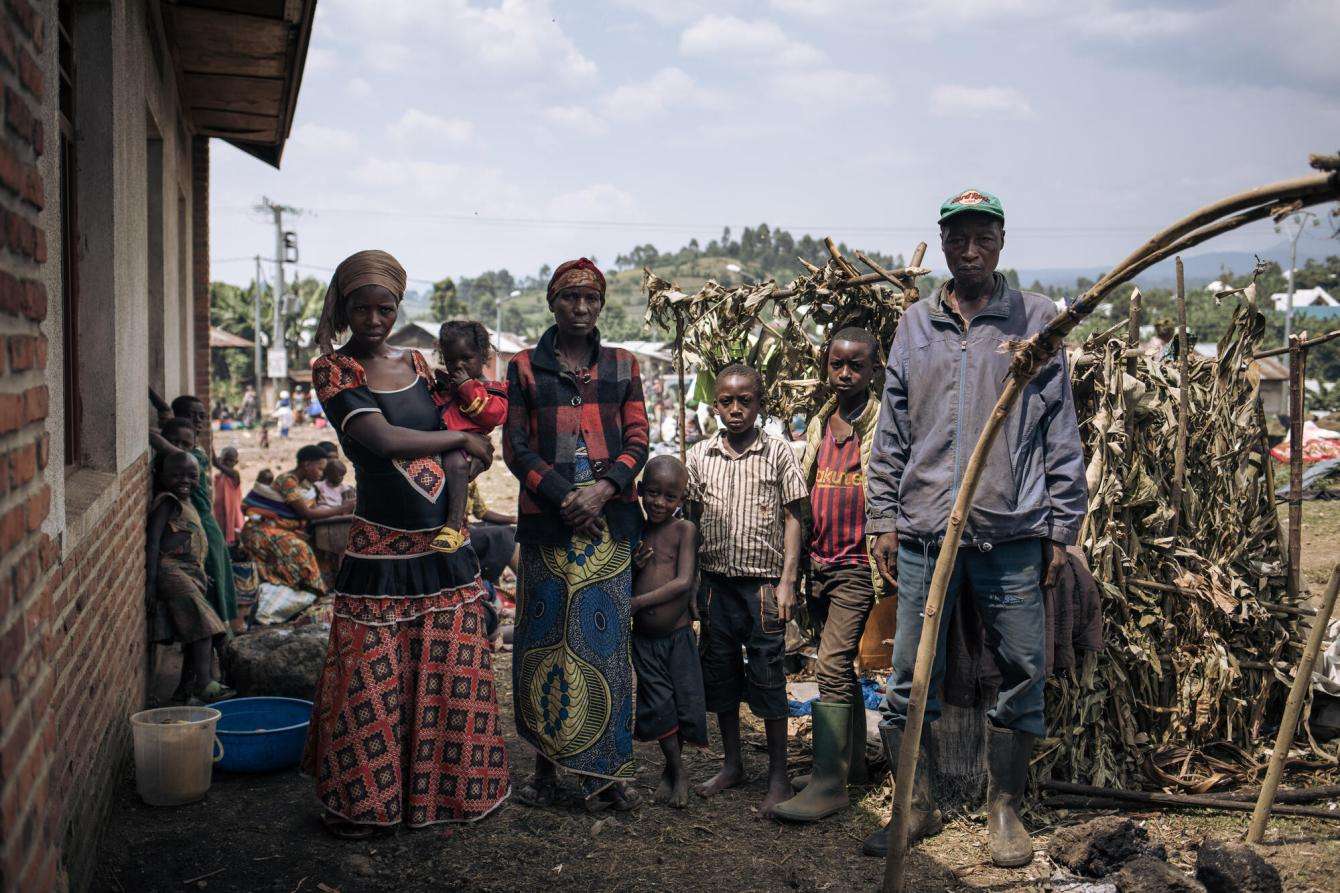
Ponsie
Ponsie (right), 54, with his family in the small wooden shelter he built next to Rumangabo Elementary School. The area has become an informal displacement camp hosting more than 3,000 people, among 2,000 others who just arrived in Rumangabo due to the conflict. The front line between the Congolese army and M23 is just a few miles from the village.
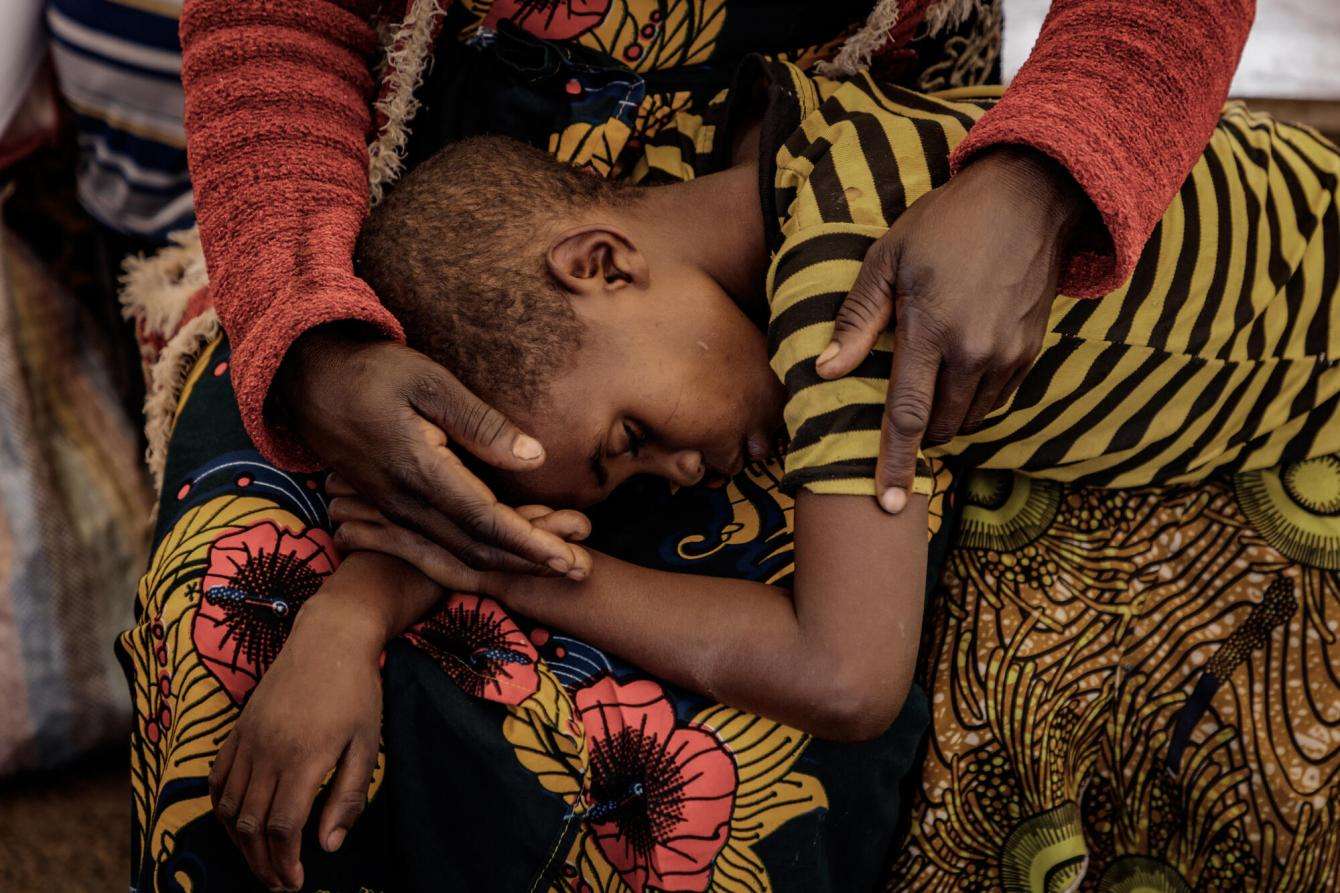
Nyira and Zawadi
Zawadi, 8, has been suffering from diarrhea and vomiting for two days and has been on a drip in a cholera treatment unit set up by MSF in the camp.
Her mother, Nyira Safari, fled the fighting in the Rugari area with her six children and husband a month ago. They found shelter in Kanyaruchinya, where they have no access to showers or toilets.
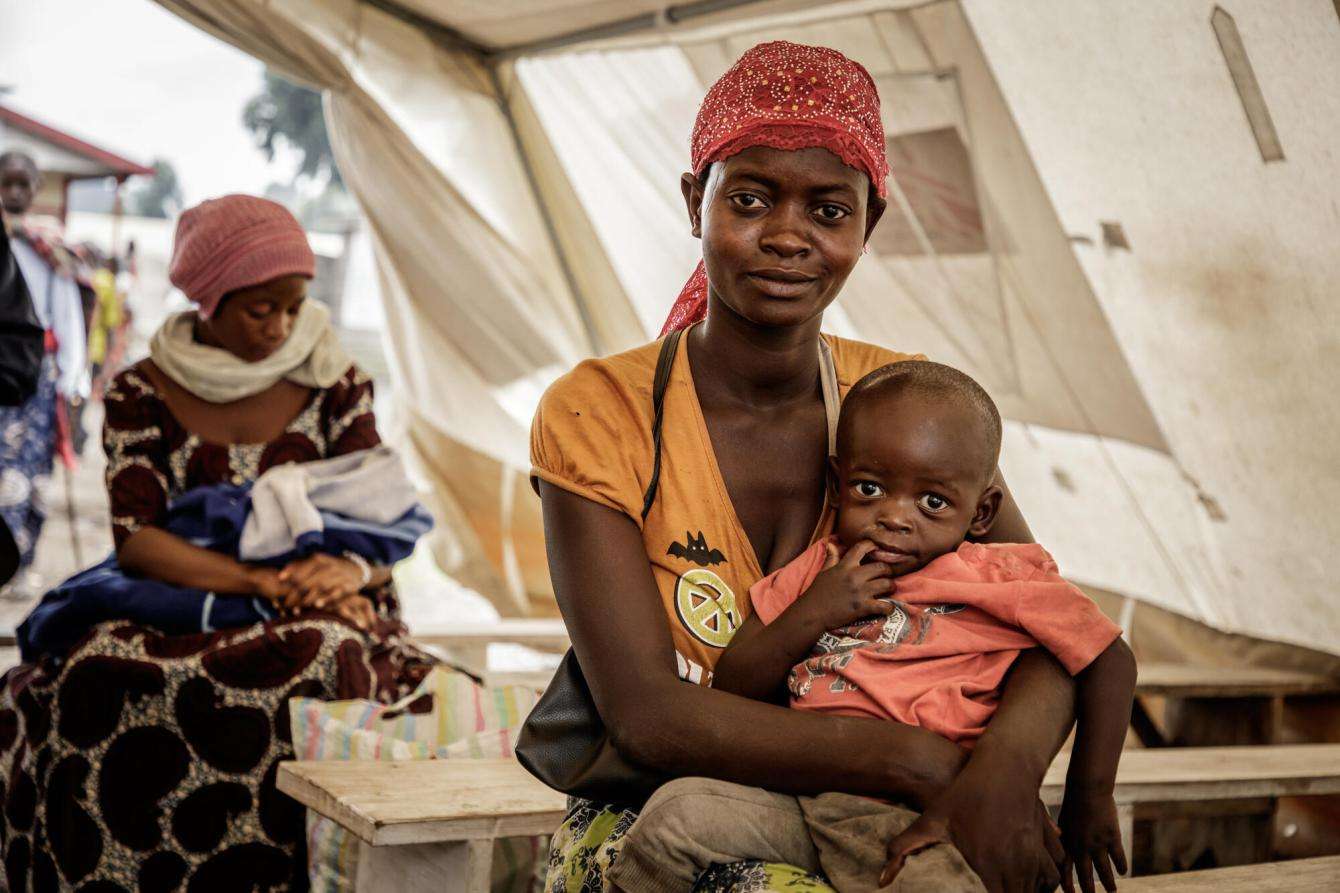
Naomi and Alexis
Naomi Furana, 20, and her son Alexis have been living in Kanyaruchinya for a month after they fled fighting around Kibumba. Her 21-month-old son Alexis has been vomiting and has had diarrhea for three days. Naomi now has the same symptoms.
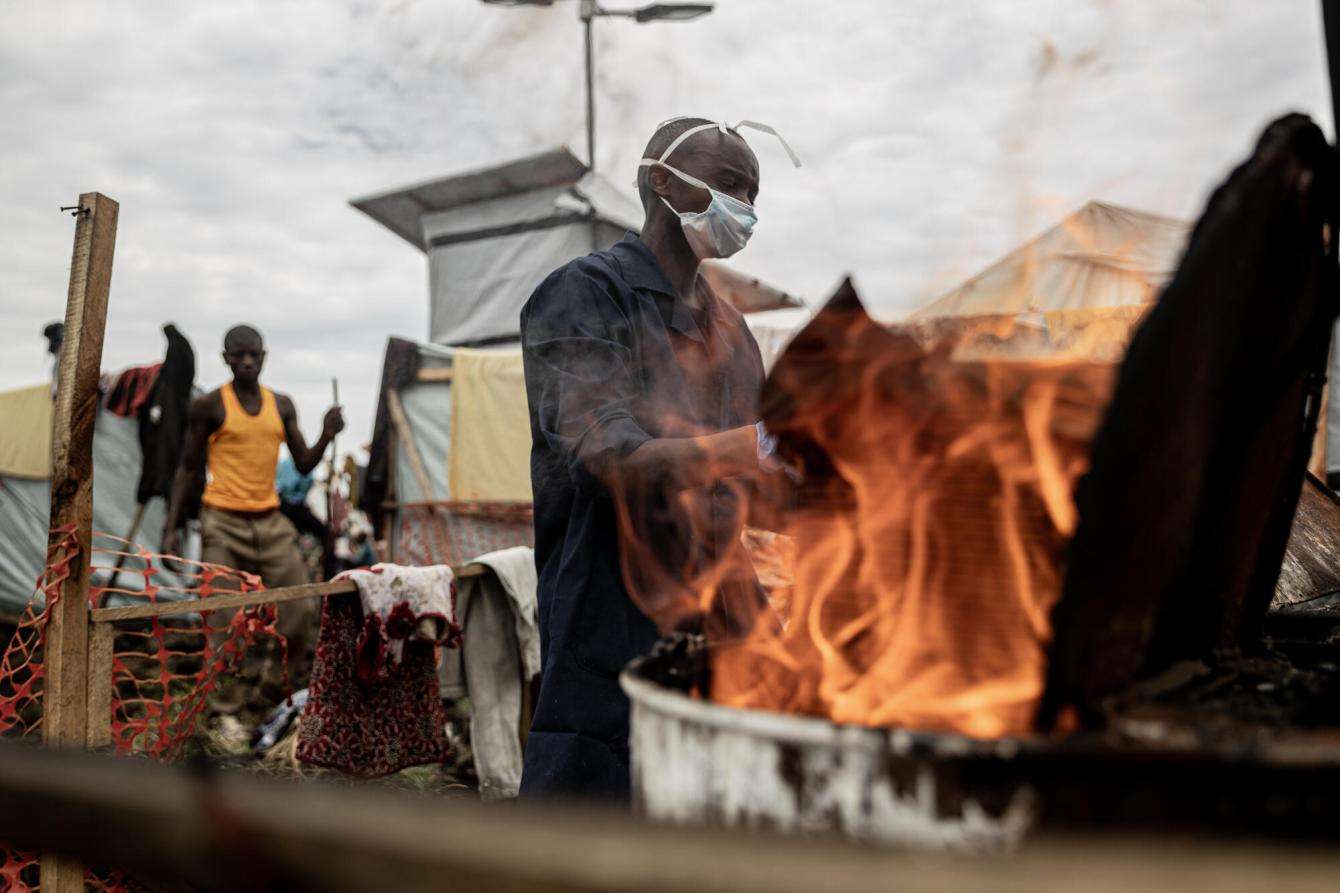
Gilbert
Gilbert Izabayo, 30, fled the Mweso area due to armed violence and now lives in Bulengo camp for displaced people. After hearing on the radio about a cholera outbreak in the camp, Gilbert wanted to do his part for other displaced people, and now he works with MSF as a hygienist. "I do this to help others protect themselves from cholera, so that it doesn't spread in the camp and that we don't get sick while we are already living in such difficult conditions.”
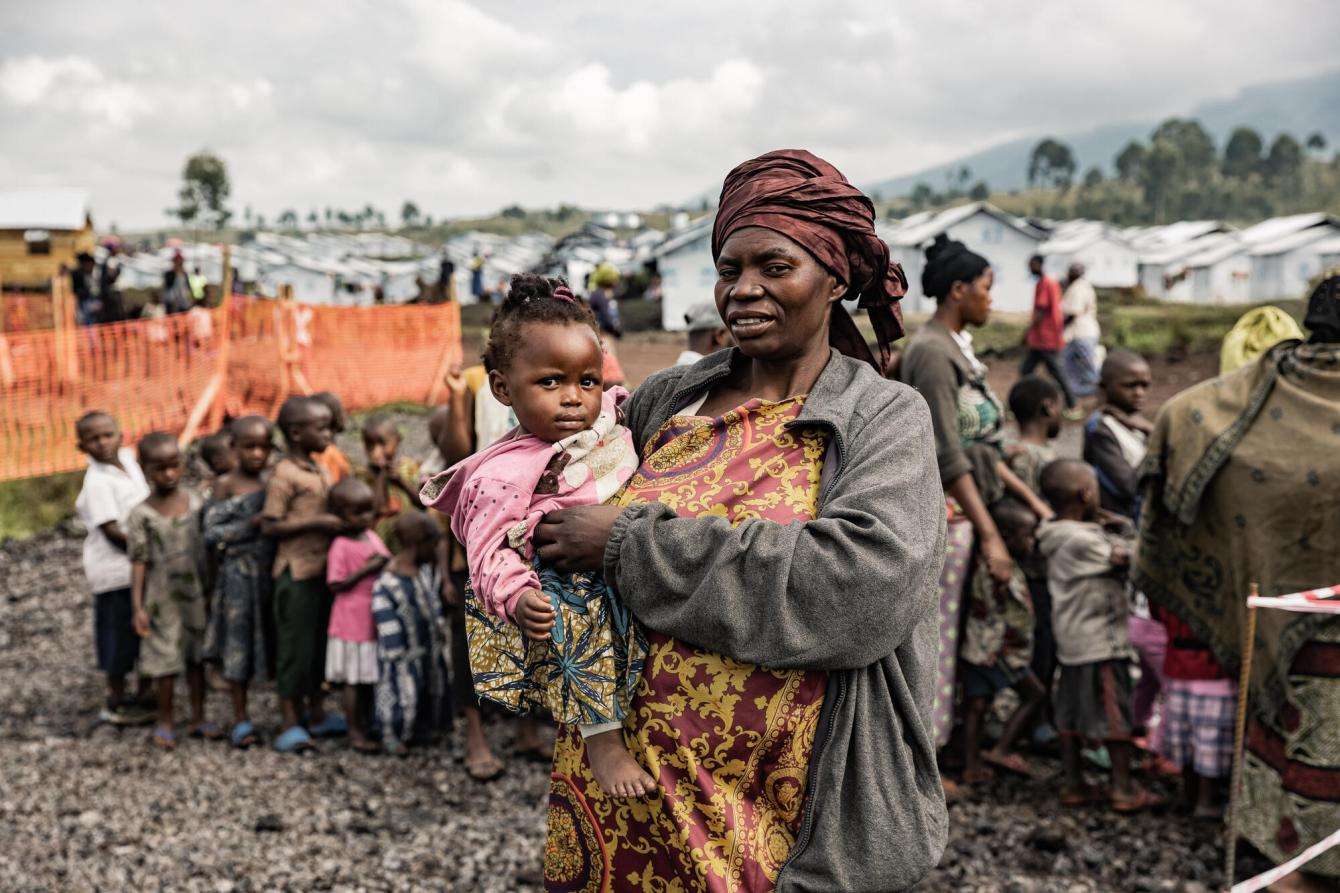
Sabrina
Sabrina, a farmer, has been living in the Kanyaruchinya camp for two months after fleeing armed clashes in Rutshuru territory. After a cholera epidemic was declared in the camp in December 2022, suspected measles cases began to increase in early January. To protect her one-year-old daughter, Bérénice, from this potentially deadly disease, she brought her to the Bushagara camp for vaccination.
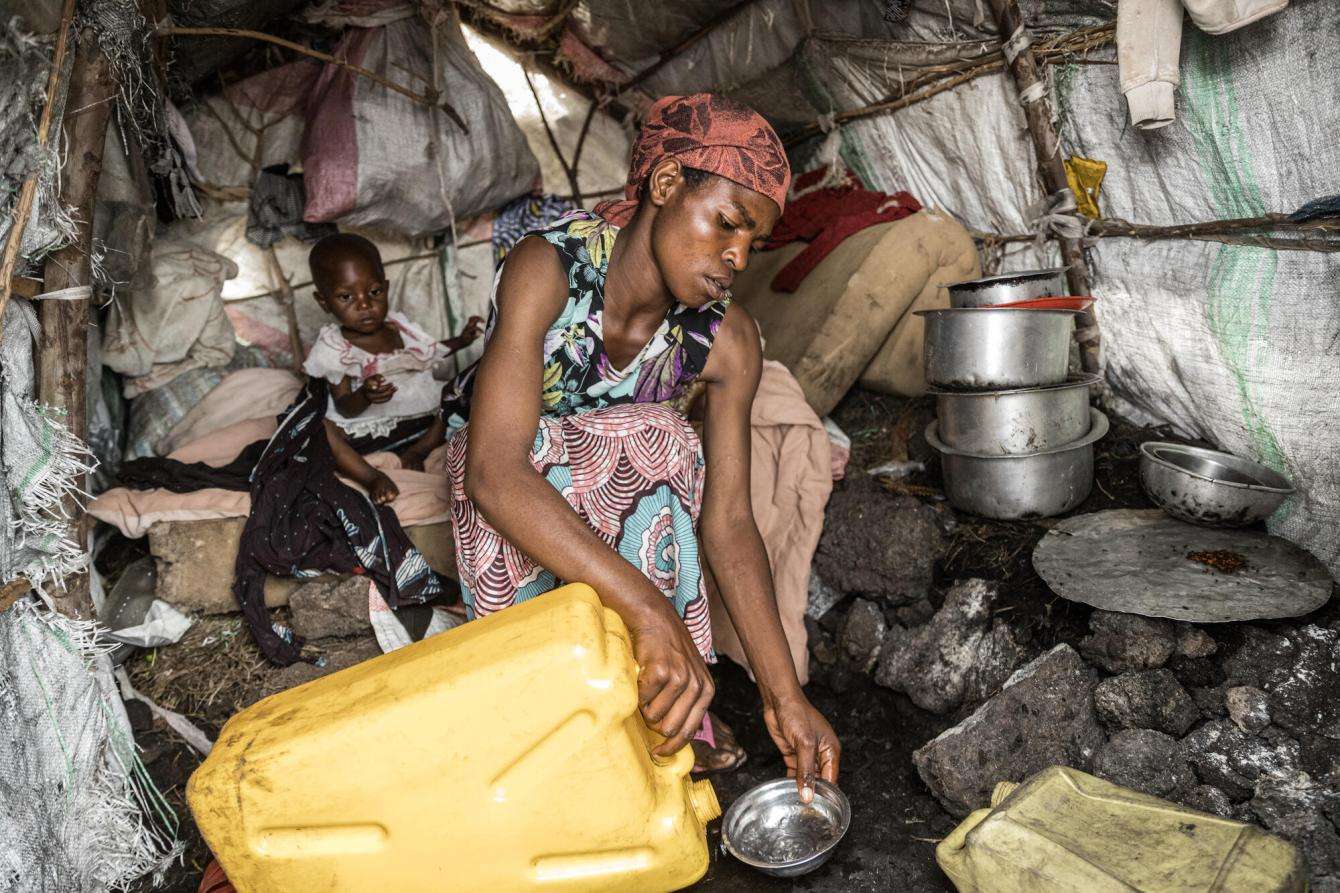
Viviane
Viviane Nyirarukundo, 29, lives with her two children in a makeshift hut in Rusayo camp, near Goma. Due to increasing armed violence, the family fled their village in Masisi territory. Viviane must now fend for herself to find food for her family. After their arrival in the camp, their health started to deteriorate and one of her children started to show symptoms of malnutrition.
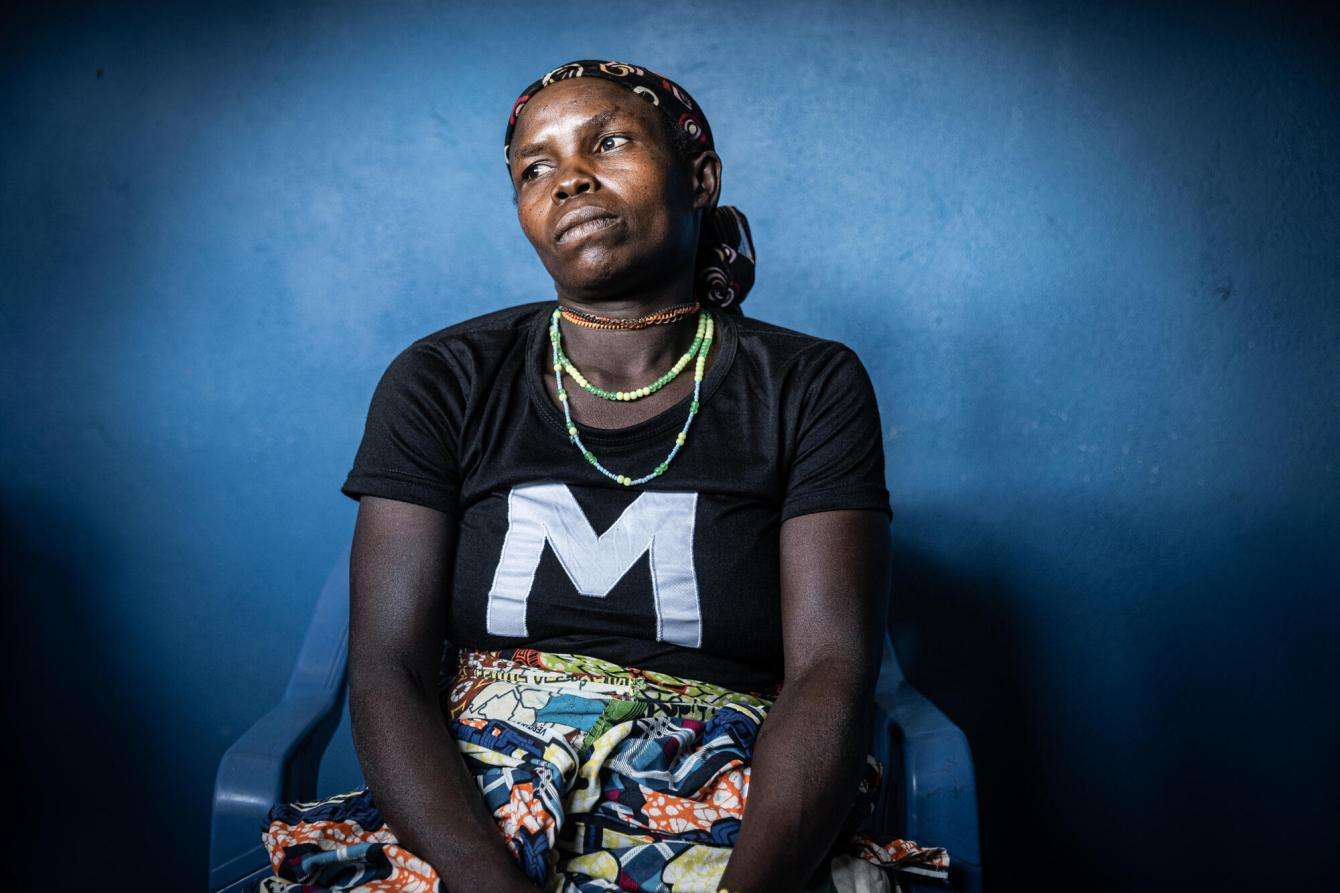
Denise
Denise, 28, waits for a prenatal consultation at the Blukwa’Mbi health center. She is seven months pregnant and had to flee her village with her husband and two children due to renewed insecurity in the Drodro health zone in early 2023. The family built a modest hut for shelter.
Denise admits that she doesn't eat every day. The last distribution of aid occurred in November 2022, leaving many people without sufficient food and basic necessities. Even access to clean water remains a persistent challenge in their makeshift home.
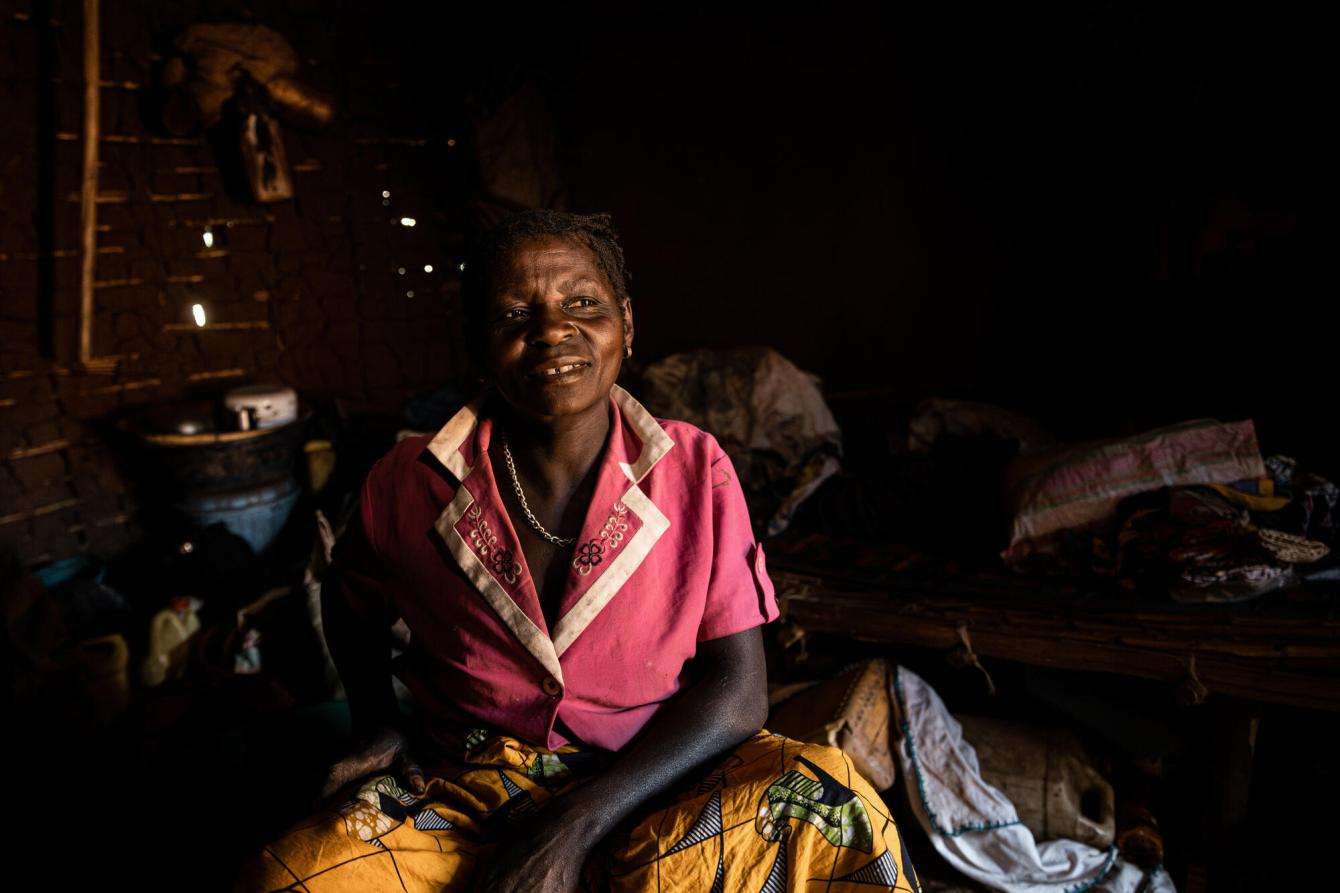
Estalla
Estalla, 45, fled her village in 2017 and now she is a host for others seeking refuge in Dhenja.
"If I go back to my village, I won't stay more than two or three months before fleeing again,” she said. “Here, I don't need to flee. I have welcomed more than 15 people in this hut. They fled insecurity and because they cannot access their fields.”
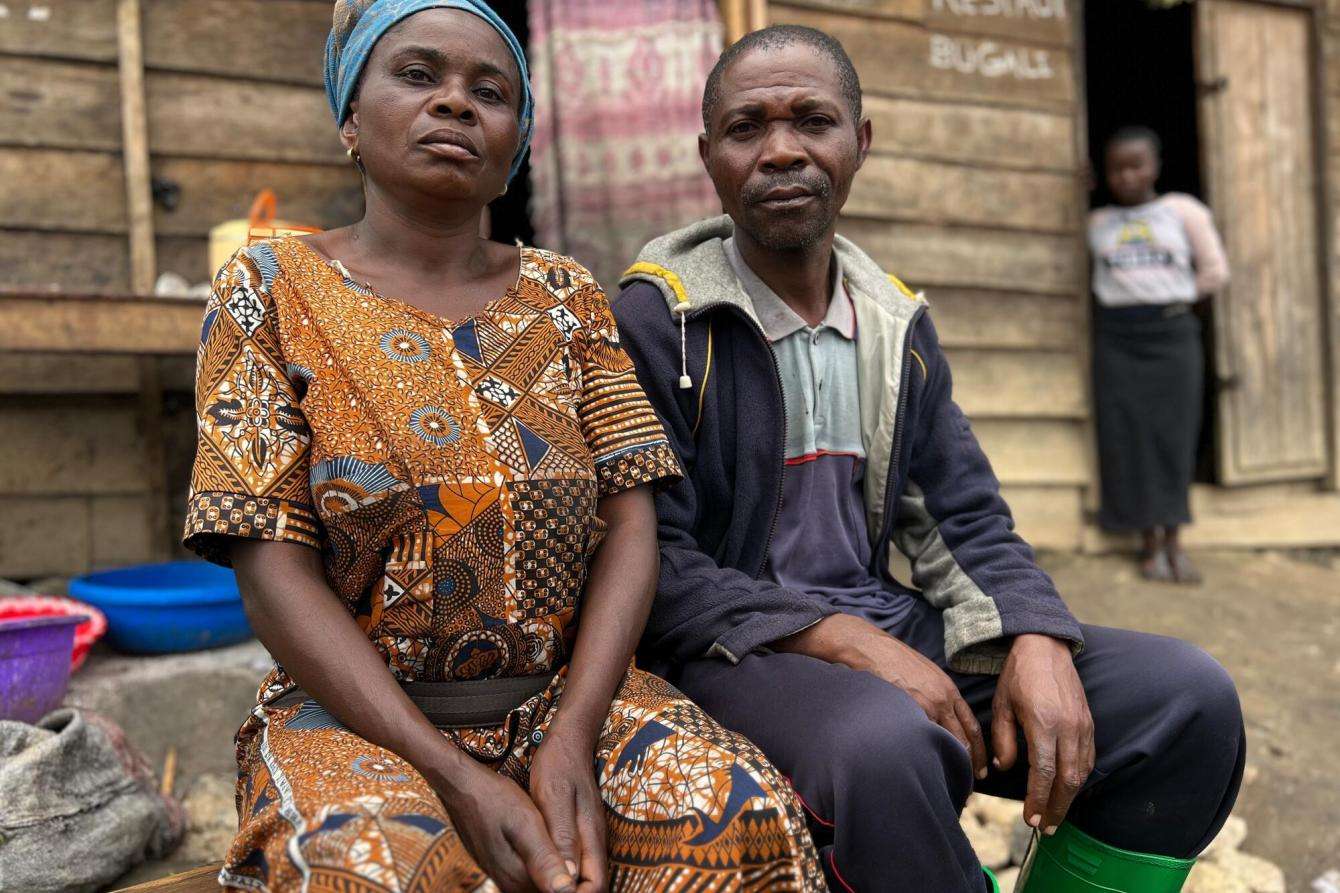
Rikizki and Birandala
Rikizki, 48, and her husband Birandala, 52, recently fled the village of Rubaya, in North Kivu’s Masisi territory. They found shelter in Numbi, where they live with their children.
In early 2023, more than 80,000 people arrived in South Kivu after fleeing the fighting in North Kivu. MSF launched an emergency response to support the newly displaced people.
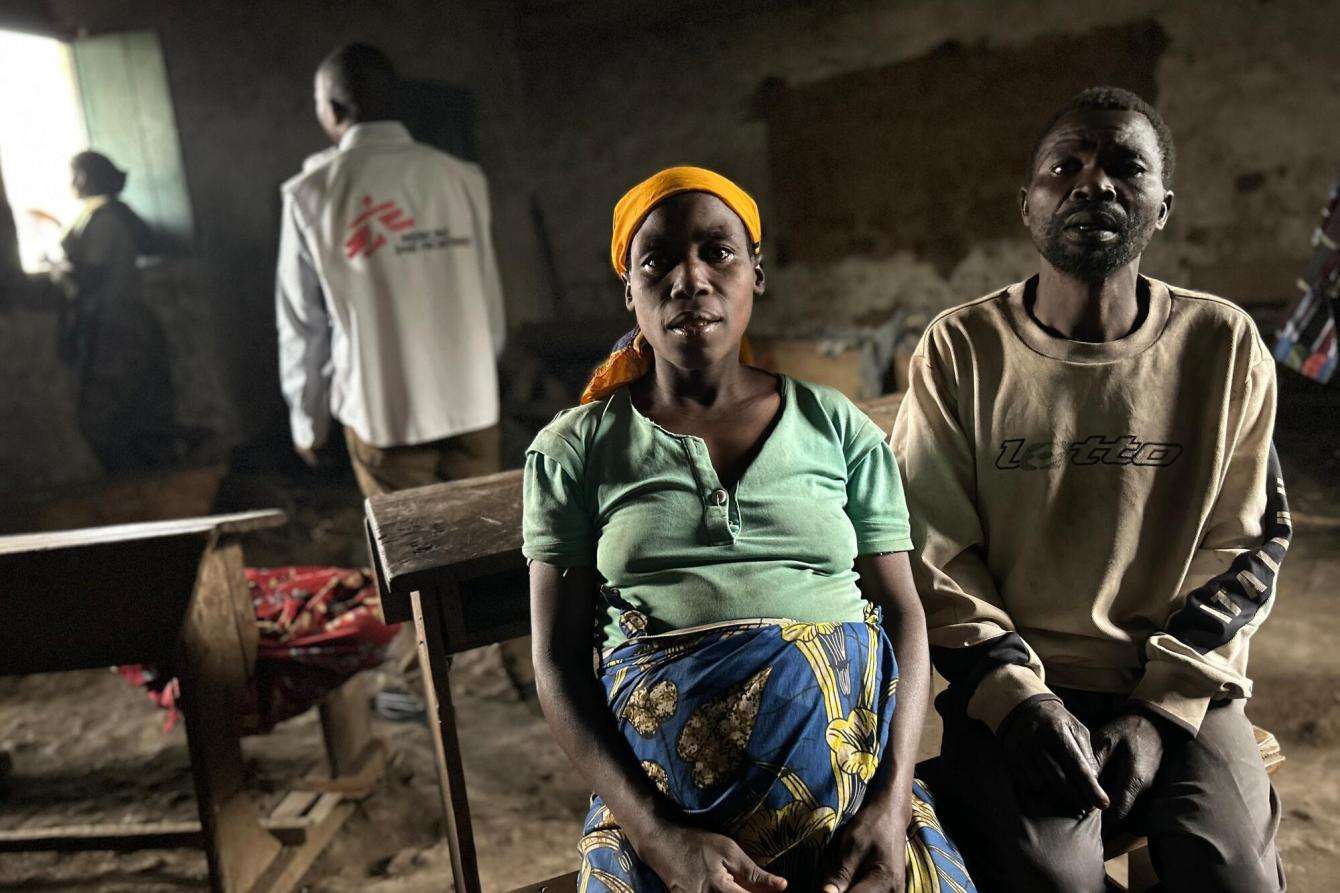
Zaninka and Bosco
Zaninka, her husband Bosco, and their children fled their village because of the resurgence of violence and now live in a school in Mweso. At first, they found shelter in the forest, but because Zaninka is pregnant, they decided to come to Mweso so they could access medical care.
Years ago, Bosco lost his first wife while she was pregnant because she could not reach a medical facility on time as they were fleeing. The loss left him traumatized, and now he will do anything to make sure Zaninka can reach the hospital safely and on time.
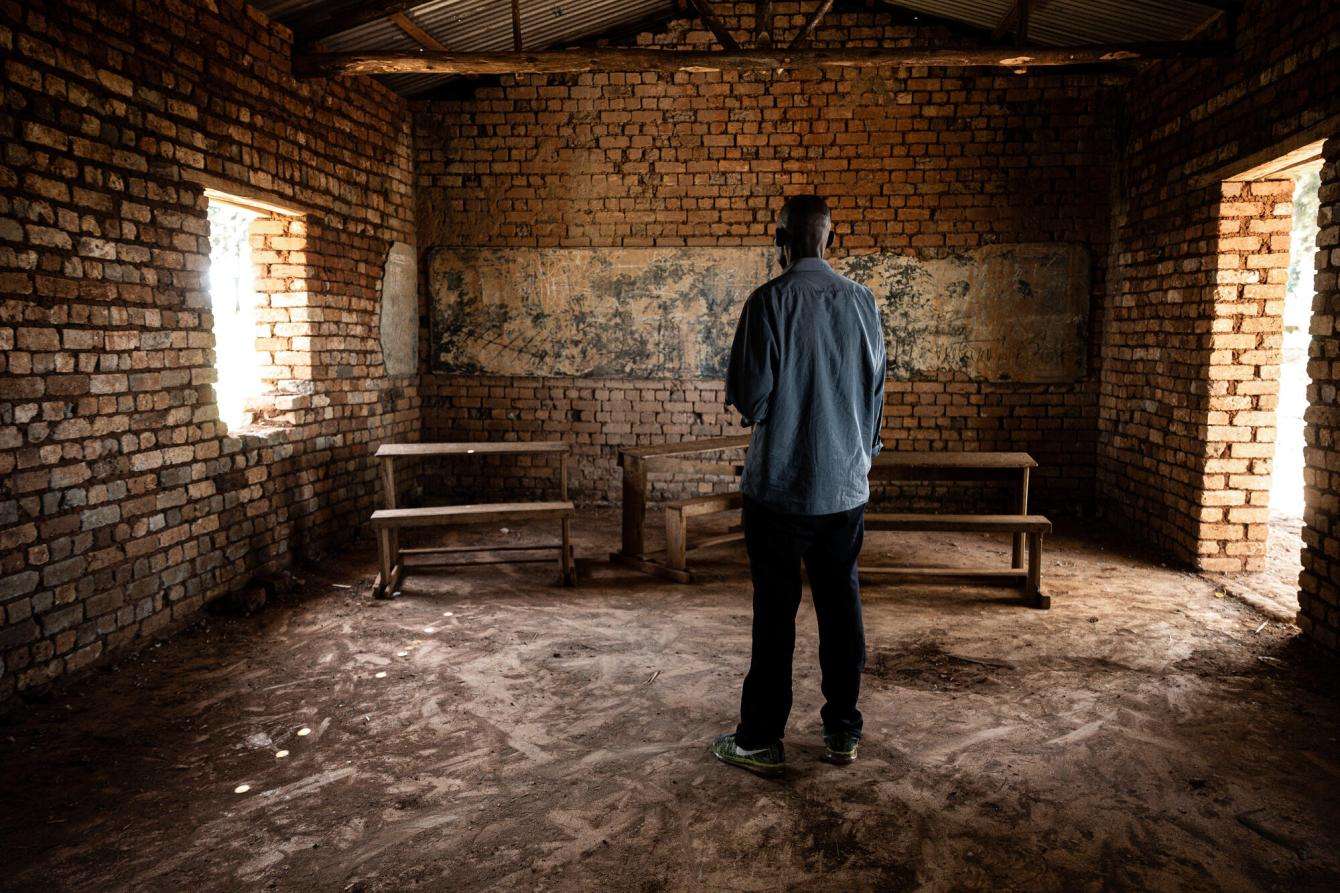
Umyerto
Umyerto Jencong Abemol is a representative for the displaced people of Chawa camp. He fled from Djugu territory, the area most affected by conflict. He shared with MSF the many needs of the displaced people.
"We need even the most basic things, such as plastic sheeting for the roof of shelters, food, cooking utensils, and medical care for adults. We are just trying to survive."
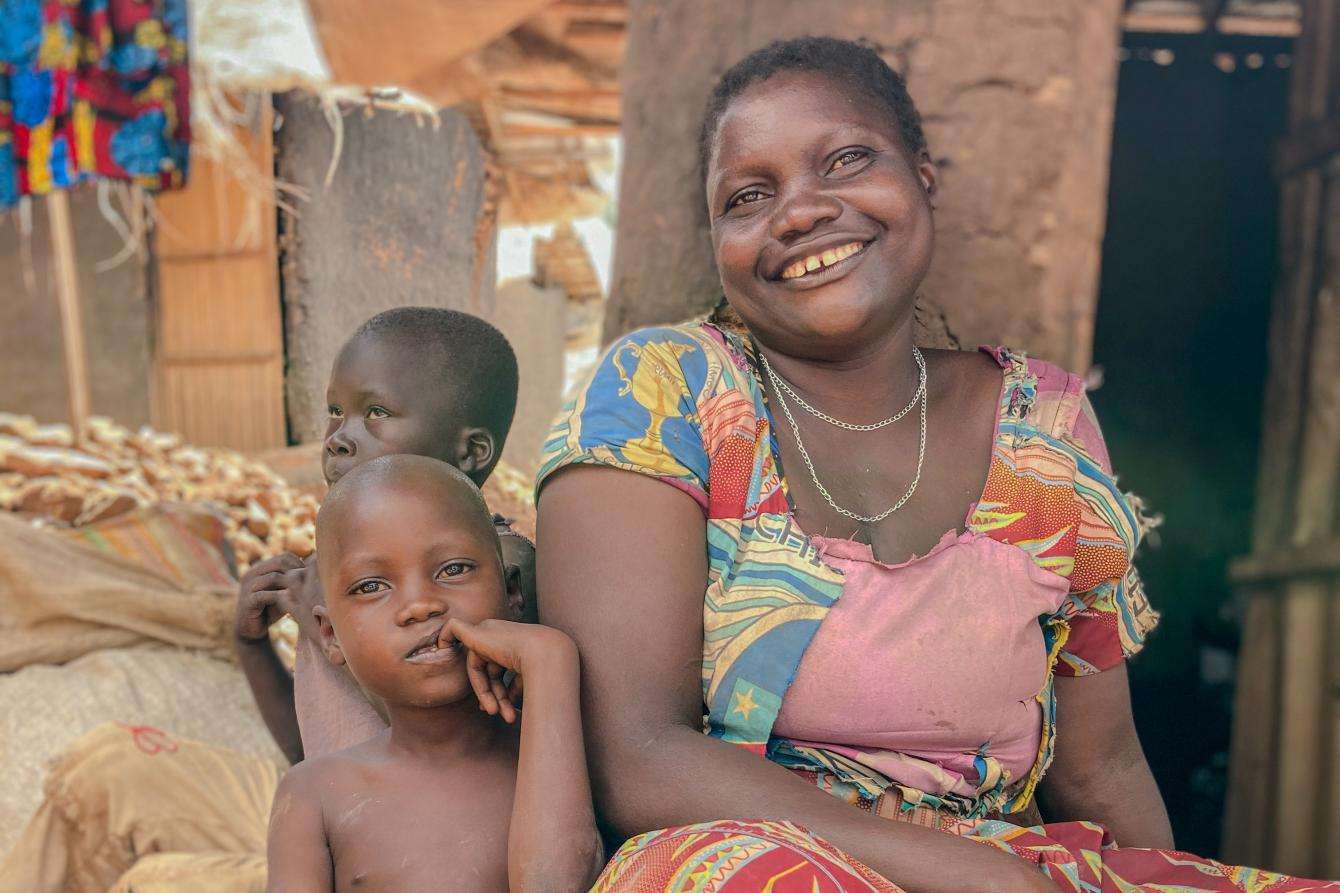
Piranok
Piranok Atimnedi lives in Chawa camp with her five children. She fled her village in an area bordering Djugu territory while her husband fled to Uganda, leaving her alone to fend for their children.
She and her children made the arduous journey to Angumu by foot. Today, Piranok tries to survive with her family by making brooms from small branches collected from palm trees. Her quest for sustenance is extremely difficult, as the owners of the land often do not allow her to touch the trees she depends on for her craft.
It's been five years now that Piranok has been struggling to simply feed her children and stay alive.
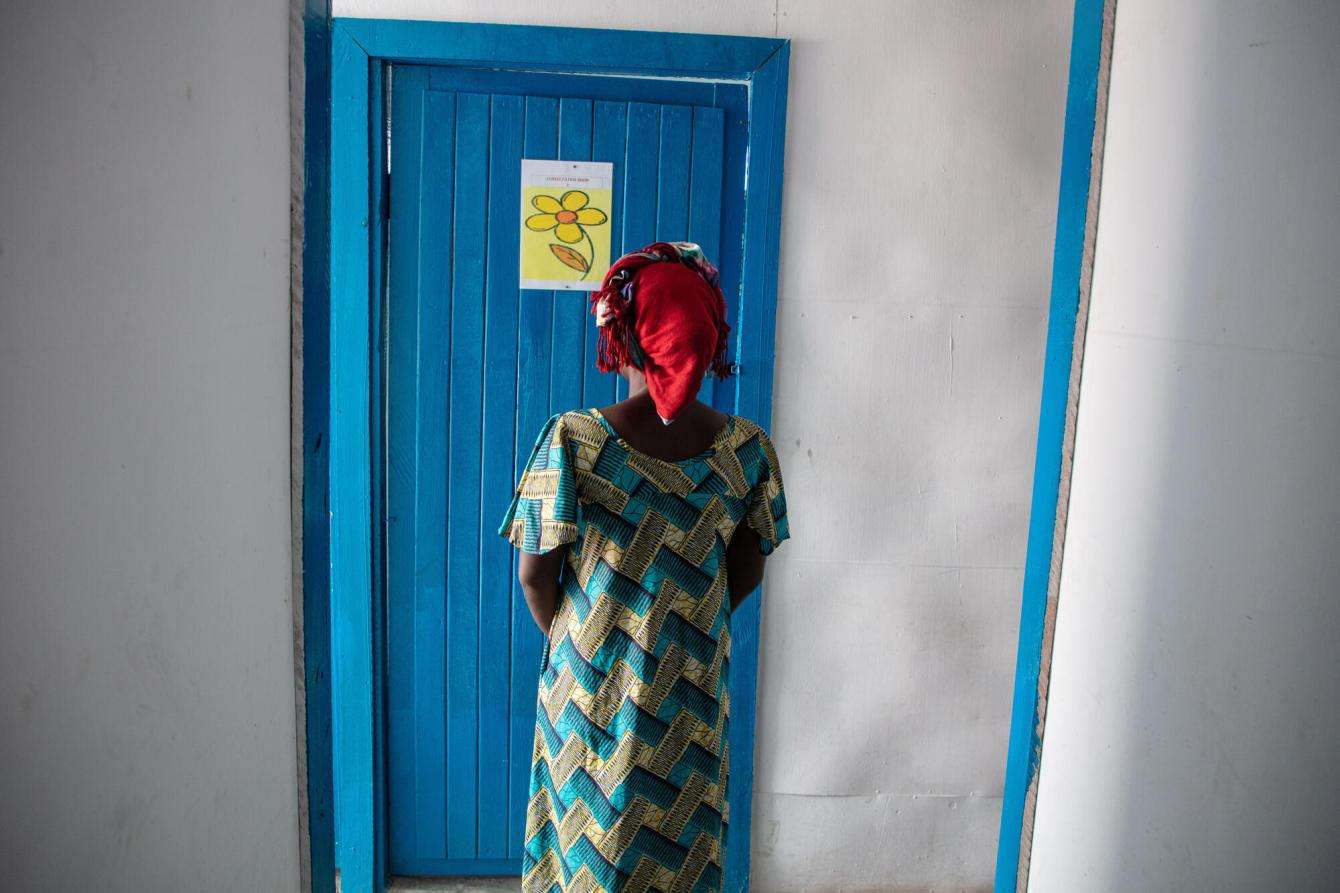
Hortense*
Hortense*, 43, attends a consultation at the Tumaini Clinic set up by MSF in Bulengo camp. The facility provides medical and mental health support to survivors of sexual violence. Hortense was raped with several of her friends while working in the fields.
“They raped all of us, beat us up, and stole our money,” she said. “Here, I received medication and did medical exams to check if I had an infection. My secret has remained between me, the doctor, and the psychologist. I am too ashamed to speak about it.”
Sexual violence increased significantly in 2023 in displacement camps. From January to October 2023, close to 13,000 survivors sought treatment at MSF clinics set up in six camps around Goma. Women of all ages come to the clinic, including survivors of sexual violence as well as those seeking family planning support, psychological advice, and treatment for sexually transmitted diseases.
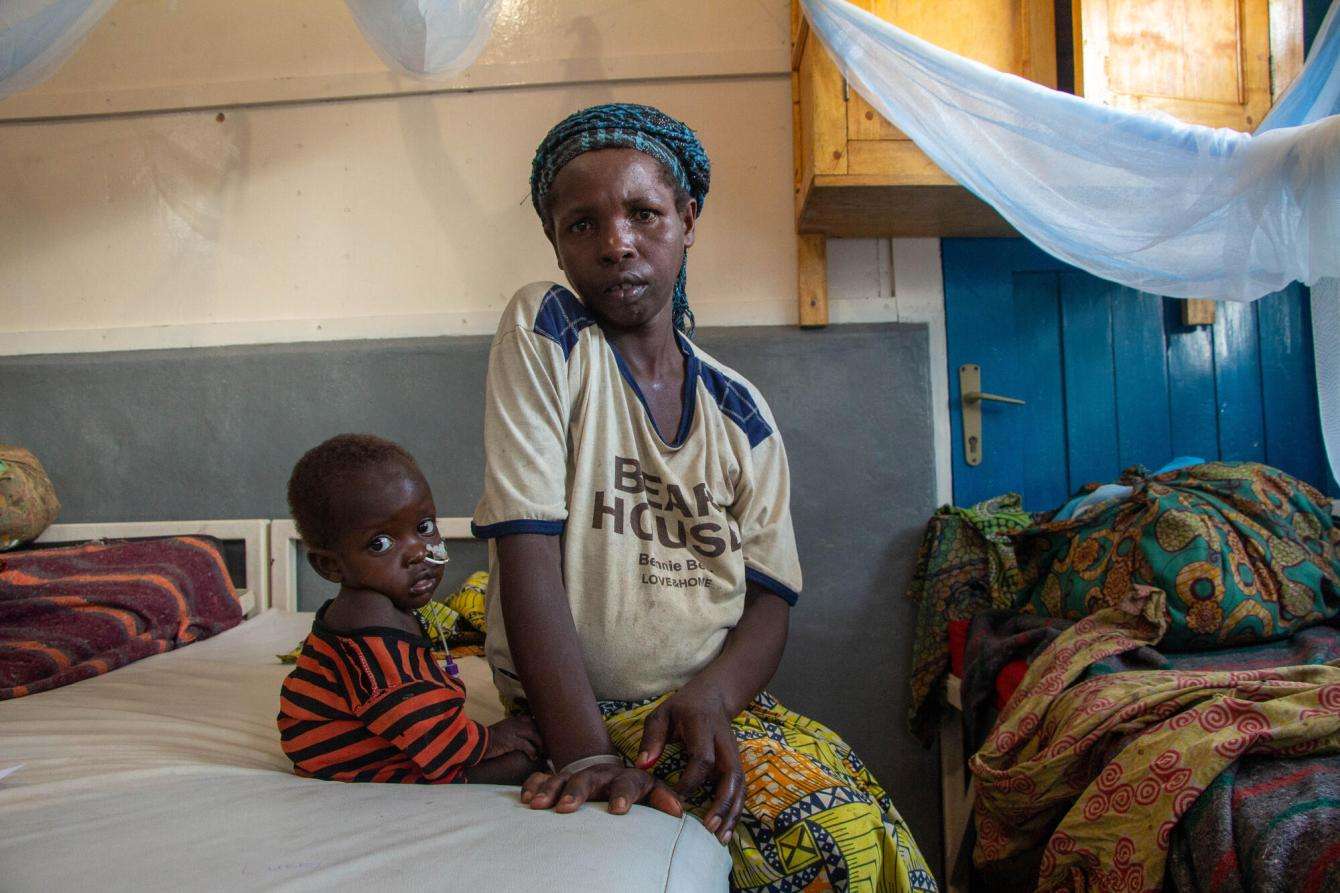
Feza
Feza, 34, took refuge in the forest with her husband and their two children after fleeing fighting between armed groups near their village. Her children have severe acute malnutrition with complications and were admitted to the intensive care unit of the inpatient therapeutic feeding center at Mweso Hospital for treatment. Fourraz, the oldest, was admitted with noma, a severe sepsis of the face that is linked to poor living conditions and a weakened immune system. He needs surgery.
"Since we have been at the hospital, the children's health has improved. But when we get out of here, what am I going to do? There's nothing in the forest, so we try to go back to the village during the day to get something to eat, but if there are armed men, we can't get there. We'll go back to the forest and there won't be any food, so we might end up coming back here.”
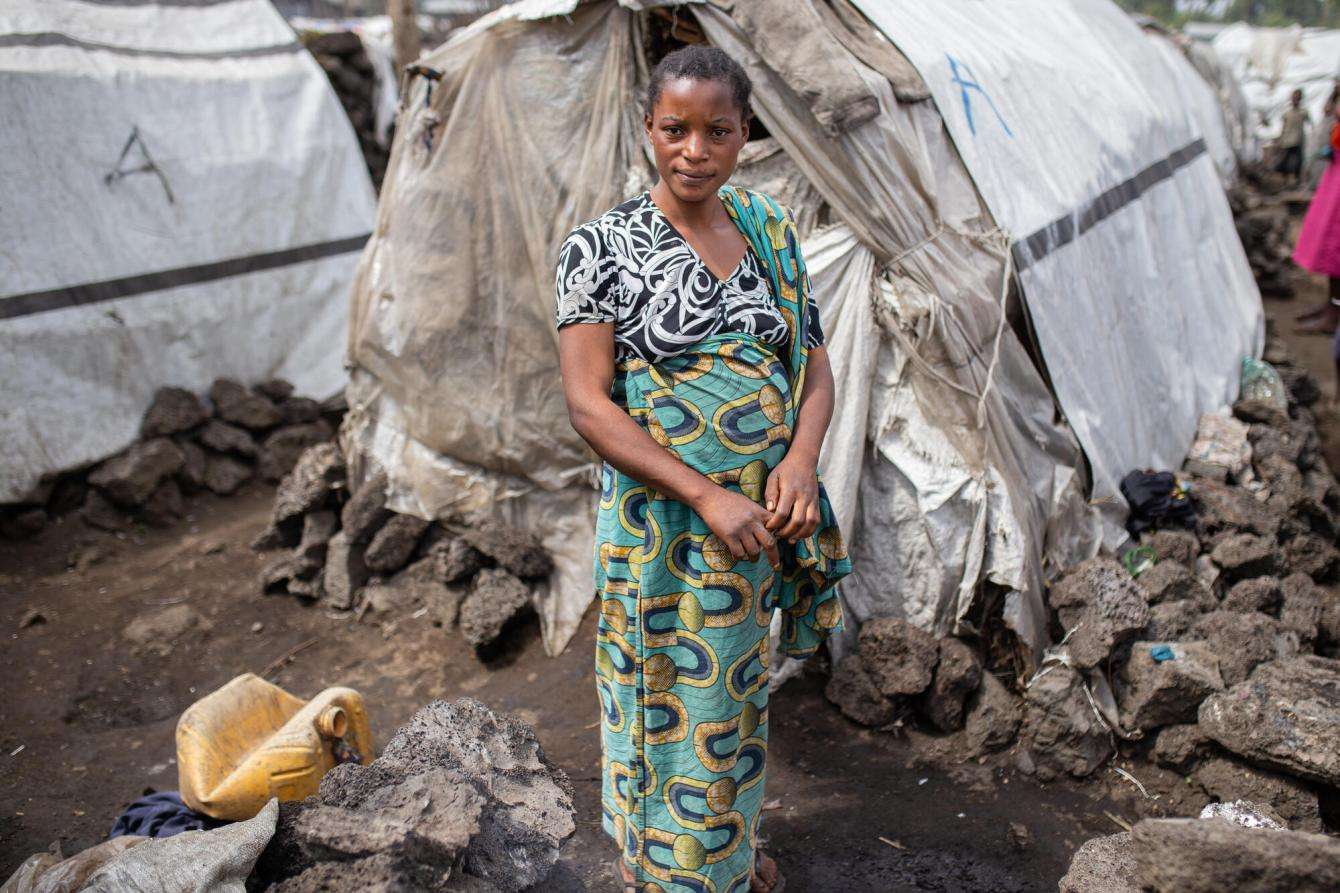
Asifiwe
Asifiwe Seburo, 22, is seven months pregnant with her third child. She lives in Kanyaruchinya camp.
“It is really difficult to be pregnant in the camp,” she explained. “We are four people sleeping in this tiny hut, latrines are often full, [and] I do not eat enough. It is a daily struggle.”
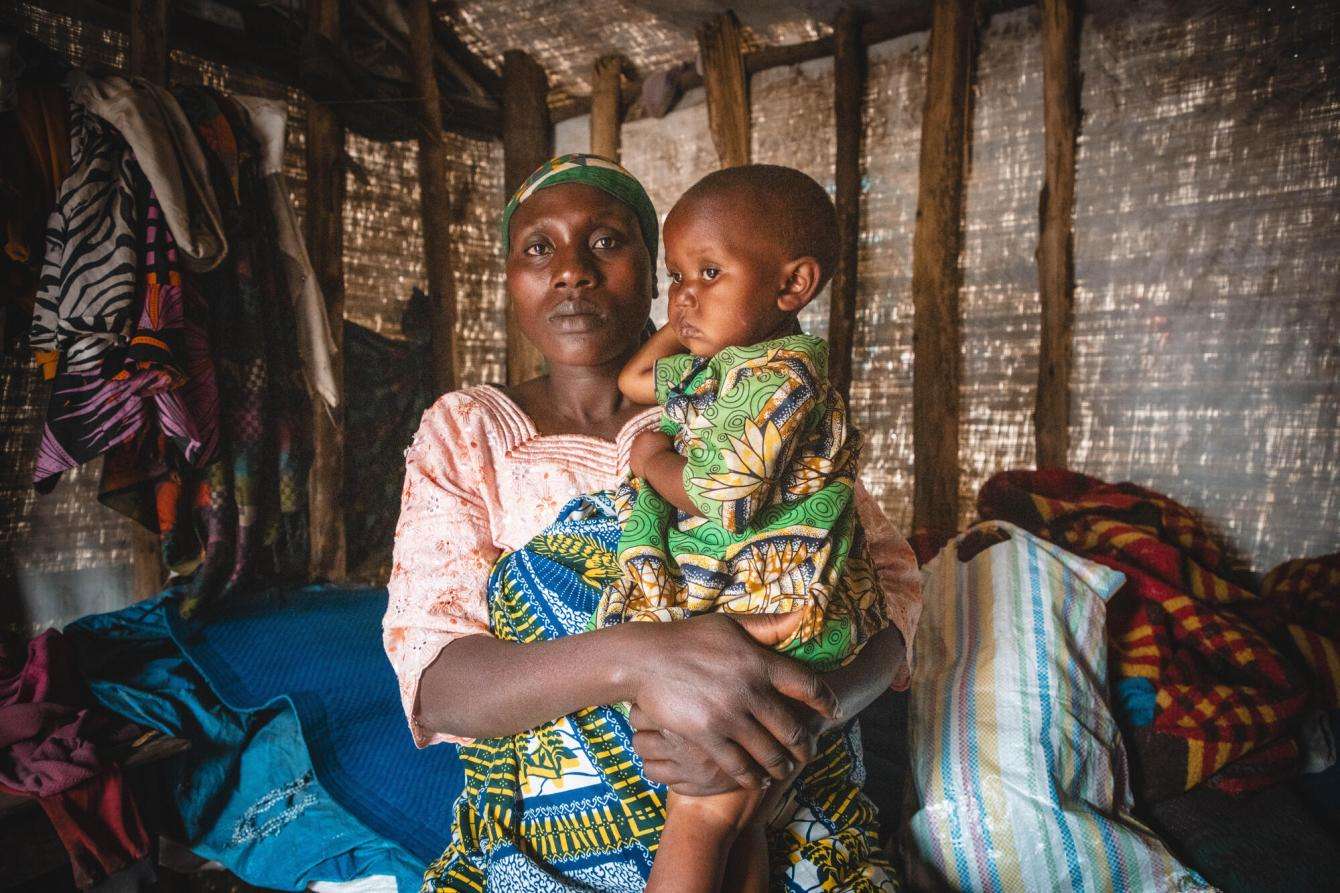
Sifa
After fleeing her village, Sifa has been living in a tent made of wood and tarpaulin sheets for the past four months. Two months ago, she lost one of her daughters because of malnutrition, and today, three of her other children are suffering from the same disease.
